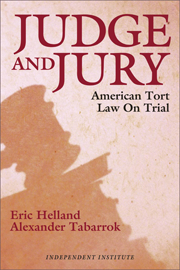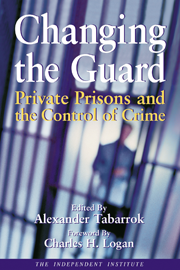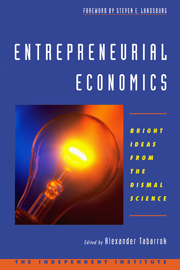Abstract: It is commonly thought that the FDA regulates the use
of all drugs in the United States. In fact, most hospital patients are
given drugs which are not FDA approved for the prescribed use. Once a drug
has been approved for some use, the FDA has almost no control over how
that drug is prescribed. Since old drugs with new uses are a substitute
for new drugs, the practice of off-label prescribing is a regulatory anomaly.
If there are good reasons for the FDA to have strong pre-approval powers
shouldn’t FDA post-approval powers be commensurate? Alternatively, if there
are good reasons for widespread off-label prescribing doesn’t this call
into question the FDA’s pre-approval powers? The unregulated off-label
market gives us some idea of what the pharmaceutical market would look
like absent the FDA’s requirement to test drugs for efficacy. The net benefits
of the unregulated off-label market appear to be large thus suggesting
that the pre-approval market for pharmaceuticals is over regulated.
A paper based on this work has now been published as:
Tabarrok, Alexander. 2000. Assessing the FDA via the Anomaly of Off-Label Drug Prescribing. The Independent Review Vol 5 #1: 25-53. |











